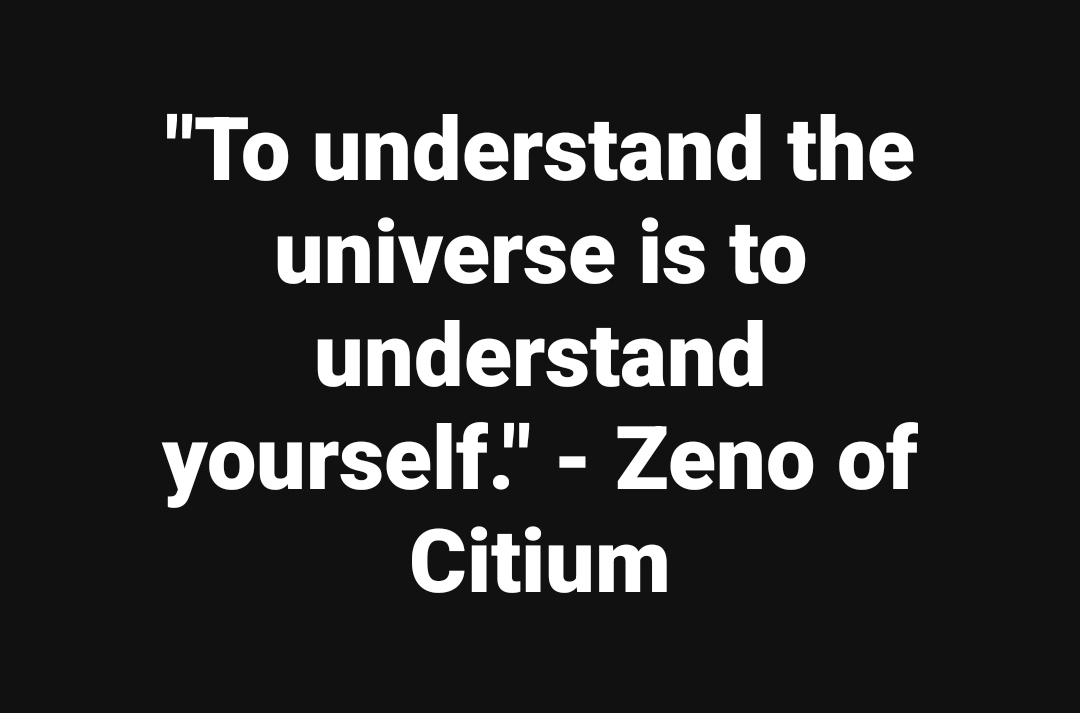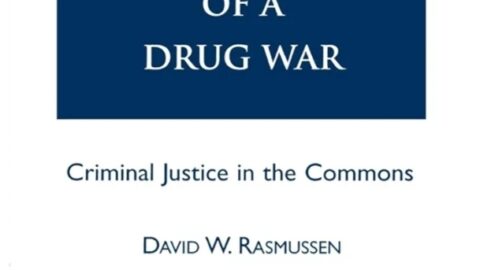Zeno of Citium, the ancient Greek philosopher and founder of Stoicism, posited that understanding the universe is fundamentally linked to understanding oneself.

This connection is rooted in the belief that our perceptions of the external world are shaped by our inner thoughts, beliefs, and actions. Zeno’s philosophy suggests that we must align our internal world with reason and virtue to better comprehend the external world. Here’s how one can understand themselves in relation to the universe, through a combination of reflection, observation, experience, philosophy, God, and scriptures:
Reflection: Self-Awareness and Introspection
The process of reflection involves taking a step back and observing our thoughts, emotions, actions, and reactions. Zeno’s teachings on Stoicism emphasized that the mind must be disciplined and that we should aim for self-control and rational thought. Reflection allows you to better understand your desires, fears, motivations, and impulses and how they influence your actions.
- Journaling or meditation can be practical tools for reflecting on your behavior and understanding how you interact with the world around you.
- Asking yourself key questions like: “What do I want most?” or “Why did I react that way?” helps reveal patterns of thought that influence how you see and act in the world.
Observation: The External World as a Mirror
Observation is the process of watching the world around you and seeing it for what it truly is, without the distortion of personal biases or preconceptions. According to Stoic philosophy, understanding yourself is inextricably linked to understanding the natural world and the universal laws that govern it.
- Zeno argued that the universe operates according to rational laws, which we must observe to make sense of our lives. The order and harmony of nature provide lessons that can guide our own actions.
- Observation teaches humility, as we realize that our individual existence is part of a larger, interconnected whole.
Experience: Learning Through Action
In Stoicism, the ideal life is one that is lived virtuously through action. To understand oneself, you must engage with the world, act with integrity, and seek virtue. Experience shapes us, and through it, we come to better understand our role in the world.
- Through life’s challenges and experiences — successes and failures alike — we learn about our own limitations, strengths, and weaknesses.
- Zeno believed that we should be active participants in life, and by doing so, we discover what we truly value and how we react to different situations.
Understanding God: The Creator and the Source of Wisdom
In Stoicism, God (or the divine) is seen as the Logos, the rational principle that governs the universe. Understanding oneself requires an understanding of the divine reason that permeates all of existence. This connection is key in Stoic thought, as it invites individuals to align their actions with the divine order of nature.
- By meditating on the nature of God and considering the divine purpose of life, you gain clarity about your own purpose and place in the grand design.
- Prayer, contemplation, and seeking guidance from a higher power (whether through personal spirituality or the teachings of religion) are ways to align oneself with divine wisdom.
Scriptures: Divine Knowledge and Moral Guidance
In addition to personal reflection and philosophical inquiry, religious scriptures provide foundational wisdom and guidance on understanding life, oneself, and the universe. Scriptures often include moral imperatives, teachings about truth, justice, and the nature of humanity, all of which guide us toward self-understanding.
- For Christians, the Bible serves as the ultimate source of wisdom and guidance in life. The teachings of Jesus Christ on love, humility, sacrifice, and virtue offer profound insights into human nature and our relationship with God.
- Other religious or spiritual traditions also provide similar ethical teachings and guidelines to help people understand their role in the universe.
Philosophy: Intellectual Exploration
Philosophy helps shape the way we think critically about the universe, humanity, and our role in both. Philosophy teaches us how to approach questions of existence, purpose, and morality.
- Philosophical traditions like Stoicism (Zeno’s school of thought), Platonism, and Existentialism provide frameworks for understanding human nature and our place in the cosmos.
- Philosophy teaches us to approach life’s challenges with reason, and it helps us recognize that understanding is not just intellectual, but practical in guiding how we live.
Emotional Intelligence: Understanding Your Emotions
To truly understand oneself, one must also develop emotional intelligence — the ability to recognize, understand, and regulate one’s emotions.
- Emotional self-awareness allows you to discern how feelings influence thoughts and behavior. By reflecting on your emotional responses to situations, you can better understand the root causes and gain control over impulsive reactions.
- Understanding emotions leads to greater empathy, helping you connect with others and better understand their behaviors and experiences.
The Role of Community and Relationships
We are not isolated beings, and a full understanding of ourselves can come from our relationships with others. Through our interactions, we learn more about our values, tendencies, and identity.
- Conversations, feedback, and relationships with others often reveal truths about ourselves that we may not recognize alone.
- Engaging in community, whether through family, friendships, or spiritual gatherings, helps solidify a more complete understanding of who we are.
Conclusion: Living a Life of Continuous Growth
Understanding the universe is a lifelong endeavor. By practicing reflection, observation, experience, learning from God and scriptures, studying philosophy, and cultivating emotional intelligence, we can achieve deeper self-understanding and live in harmony with the universe.
Ultimately, like Zeno suggests, to understand the world around us, we must first understand ourselves. This knowledge, rooted in both philosophical inquiry and spiritual reflection, is the key to true wisdom and enlightenment.






